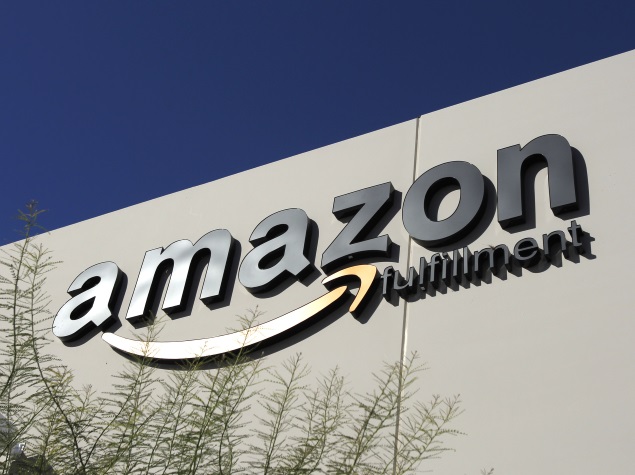- Home
- Internet
- Internet News
- EU Charges Luxembourg for Giving Illegal Tax Breaks to Amazon
EU Charges Luxembourg for Giving Illegal Tax Breaks to Amazon

EU regulators charged Luxembourg Friday with giving illegal tax breaks to Internet shopping giant Amazon, putting European Commission chief Jean-Claude Juncker back in the spotlight over deals made when he was the duchy's premier.
The European Commission's preliminary findings into Amazon's deals with the tiny country were the latest in a widening probe by Brussels into sweetheart tax arrangements between major companies and several countries.
They follow last year's "Luxleaks" scandal which revealed details of tax breaks given to dozens of major firms during Juncker's 19 years as Luxembourg premier.
The Commission, the EU's powerful executive arm responsible for policing its competition rules, said its "preliminary view is that the tax ruling... by Luxembourg in favour of Amazon constitutes state aid."
"The Commission has doubts at this stage as to that ruling's compatibility with" European Union internal market rules, which are meant to ensure a level playing field for companies and to protect consumers, it said.
Accordingly, the arrangement may have given the company an unfair advantage over competitors and would therefore be illegal.
Luxembourg said it "is confident that the allegations of state-aid are without merit ... and it will be able to show that its tax arrangements were legitimate and afforded no unfair advantage."
Luxembourg was fully cooperating with the Commission probe and had supplied all the information requested, it added.
Tax policy under scrutiny
The EU has opened similar investigations into US tech icon Apple's deals with Ireland, coffee-shop chain Starbucks with the Netherlands and Italian automaker Fiat, also with Luxembourg.
If found at fault, a country would have to recover the amount granted in illegal state aid, potentially a huge amount of money given that some of the tax deals date back many years.
Such tax arrangements are widespread in practice and are not strictly illegal in themselves, constituting tax avoidance rather than tax evasion which does breach the law.
(Also See: Amazon Executive Hopes for Era of Peace With Publishers)
However, critics say they allow companies too much leeway, minimising their tax burden at the expense of ordinary citizens who have had to suffer through tough austerity programmes imposed by EU governments desperate to balance the public books.
The fallout from the 2008 global financial crash, which brought the EU economy to its knees, put tax policy at the top of the agenda, with member states pledging to make the system fairer and more transparent.
Tax policy, however, remains a member state prerogative in the EU so the Commission has taken up the cudgels on competition grounds.
Juncker in firing line
The revelations have proved embarrassing for Juncker who in response has led the charge for a full investigation and efforts to establish common tax standards for the 28-nation bloc.
Many remain dissatisfied with his stance however and on Wednesday, the Greens Group said it had collected enough votes to force the European Parliament to launch a probe of its own.
In November, Juncker survived a no confidence vote in Parliament as the scandal overshadowed his first days in office, with some even calling for him to stand down.
Juncker suggested that the scandal had been used as a way to attack him and insisted he was not personally involved in the deals.
At his swearing in, he promised that tackling tax avoidance would be a priority for his 5-year term.
"For tax harmonisation, the coordination and bringing together of tax policies is an absolute necessity. I will do it," Juncker said.
Catch the latest from the Consumer Electronics Show on Gadgets 360, at our CES 2026 hub.
Related Stories
- Samsung Galaxy Unpacked 2025
- ChatGPT
- Redmi Note 14 Pro+
- iPhone 16
- Apple Vision Pro
- Oneplus 12
- OnePlus Nord CE 3 Lite 5G
- iPhone 13
- Xiaomi 14 Pro
- Oppo Find N3
- Tecno Spark Go (2023)
- Realme V30
- Best Phones Under 25000
- Samsung Galaxy S24 Series
- Cryptocurrency
- iQoo 12
- Samsung Galaxy S24 Ultra
- Giottus
- Samsung Galaxy Z Flip 5
- Apple 'Scary Fast'
- Housefull 5
- GoPro Hero 12 Black Review
- Invincible Season 2
- JioGlass
- HD Ready TV
- Laptop Under 50000
- Smartwatch Under 10000
- Latest Mobile Phones
- Compare Phones
- Tecno Spark Go 3
- iQOO Z11 Turbo
- OPPO A6c
- Samsung Galaxy A07 5G
- Vivo Y500i
- OnePlus Turbo 6V
- OnePlus Turbo 6
- Itel Zeno 20 Max
- Lenovo Yoga Slim 7x (2025)
- Lenovo Yoga Slim 7a
- Lenovo Idea Tab Plus
- Realme Pad 3
- Garmin Quatix 8 Pro
- NoiseFit Pro 6R
- Haier H5E Series
- Acerpure Nitro Z Series 100-inch QLED TV
- Asus ROG Ally
- Nintendo Switch Lite
- Haier 1.6 Ton 5 Star Inverter Split AC (HSU19G-MZAID5BN-INV)
- Haier 1.6 Ton 5 Star Inverter Split AC (HSU19G-MZAIM5BN-INV)
















